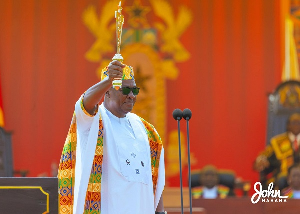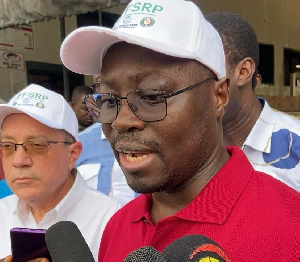"You elected us to solve the problems, not to put the blame on anyone else. We will make sure your lights stay on and that you don’t have dumsor.”
This powerful statement, delivered by President John Dramani Mahama, encapsulates the complex relationship between a nation's leadership and its energy security.
His promise to end “dumsor,” the Ghanaian term for the crippling power outages that plagued the country, resonated deeply with a populace weary of erratic electricity supply. Analysing this pledge reveals not only the political weight of energy provision but also the multifaceted challenges inherent in fulfilling such a commitment.
Mahama's words directly address the core frustration of the Ghanaian people. Dumsor wasn't just an inconvenience; it was a significant impediment to economic growth, hindering businesses, disrupting education, and impacting the daily lives of citizens.
The president's declaration therefore went beyond a simple technical fix; it represented a pledge of effective governance and a commitment to improving the quality of life.
By explicitly rejecting the temptation to shift blame – a common political tactic – Mahama positioned his government as solely accountable for resolving the crisis. This bold assertion raises the stakes significantly, transforming the issue from a technical challenge into a test of his administration's competence and legitimacy.
The reality of resolving Ghana's power crisis are far more nuanced than a simple statement. The underlying problems are deeply entrenched. Cost overruns, and technical challenges have contributed to the ongoing setbacks.
Furthermore, the issue of distribution remained critical. Even with increased generation, getting the power reliably to consumers requires significant investment in upgrading the aging and often inadequate transmission and distribution infrastructure. This requires navigating complex regulatory landscapes and engaging with both private and public sector stakeholders.
Mahama’s administration face the difficult task of balancing ambitious energy goals with the practical realities of implementing large-scale infrastructure projects.
The success or failure of these initiatives would not only determine whether the promise of ending dumsor would be kept but would also significantly impact Ghana's economic trajectory.
The legacy of Mahama's efforts, therefore, extends beyond the immediate experience of power outages; it speaks to the broader challenge of nation-building and the critical role of effective leadership in addressing complex socio-economic problems.
His promise serves as a case study in the political ramifications of energy security. It highlights the profound impact of reliable electricity on a nation's development and underscores the need for long-term, strategic planning, significant investment, and transparent governance to effectively address the challenges of ensuring sustainable energy access for all citizens.
His words, while impactful and indicative of a strong political will, ultimately illustrate the complex and multi-faceted nature of resolving deep-seated infrastructural challenges within the confines of political realities and budgetary constraints.
The legacy of "dumsor" and the efforts to overcome it continues to shape Ghana's energy landscape and serves as a valuable lesson for other nations grappling with similar challenges.
Opinions of Friday, 10 January 2025
Columnist: Anthony Obeng Afrane















